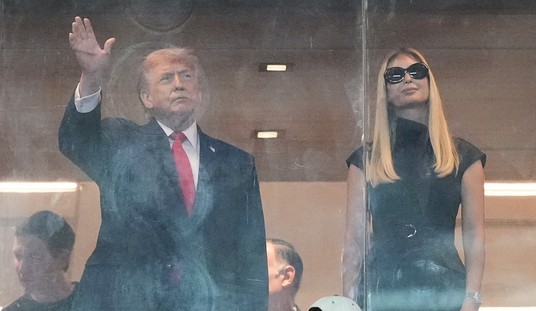The new Congress is going to face some very ugly budget choices, and be looking for savings wherever it can. There is little doubt that NASA will face serious scrutiny, even after the turmoil of the past nine months, since the Obama administration ineptly rolled out its budget request in February. While it’s a small slice of the pie (about half a percent in the current bloated federal budget, though many mistakenly imagine it much larger), it has very high visibility. Also, a great deal of mythology swirls around it, which is one of the reasons that good space policy has historically been hard to come by.
A best-case scenario may be a roll-back to 2008 levels ($17.3B, or a 9% reduction from the FY2011 request of $19B), as the Republican leadership has suggested as at least a first step in getting the overall budget under control. A worse one is a cut back to $15B (as rumors indicate will be the recommendation of the Deficit Commission), a 21% reduction. The worst, at least for those who favor manned spaceflight, is program cancellation entirely, though this is unlikely given international obligations for the International Space Station.
But in any event, something is going to have to give, and the current Congress, particularly the House, was unwilling to make the difficult choices necessary for NASA to have budgetarily sustainable plans, with demands for the “Space Launch System” — an unneeded heavy-lift vehicle — and business-as-usual at the agency, in which it continues to attempt to develop and operate its own unique systems to get its astronauts into orbit despite the many decades of failure to do so, at very high cost.
While the dominant cause of this is pork in the districts and states of authorizers and appropriators, it’s not the only one. Part of the mythology of the agency is that it is somehow important to national security for NASA to have its own unique means of getting astronauts into space. Some (and even some who should know better, on the Hill) imagine that it’s literally true, in the sense that there are secret military missions performed by NASA astronauts (there aren’t). Others see it as symbolic, harkening back to Apollo when it was a matter of international prestige in an existential Cold War with the Soviets. Either way, they cannot countenance the thought of NASA astronauts as passengers in commercial vehicles, though they do it with airlines every day, as do troops heading to fronts of wars.
But in the nation’s current fiscal straits, such indulgences are no longer affordable, and they hold us back from real progress. A year ago, the Augustine panel pointed out the disconnect between such NASA plans and the available budget, and the problem has only grown worse in the interim, despite the willingness of the Congress to ignore it with the NASA authorization bill it passed in late September.
Now that they are taking over the House, it is time, with respect to human spaceflight, for Republicans to grow up and start acting like the conservatives, fiscal and otherwise, they profess to be.
In the early fifteenth century, the Ming Dynasty of China, under the leadership of the great Admiral Zheng He, was sending out fleets of large sailing ships — the biggest in the world — laden with treasure of the empire to distribute to and impress the heathens in other lands. The ships reached all the way to the coast of Africa and perhaps even across the Pacific to the Americas. Unlike the Europeans who would explore a few decades later and went to the Americas and East Indies for “God, Gold, and Glory,” it was a program of purely national prestige. Accordingly, because it was not engaging in trade or returning anything of value commensurate with the cost, it was ultimately cancelled and the ships destroyed, to the point at which even building such ships became a capital crime.
Many space advocates take a false lesson from this history — that China should not have turned its back on exploration, and by so doing relinquished the new worlds being discovered to the Europeans who settled the Americas and Australia. But the true lesson is that exploration should be done not for prestige, but as a precursor to exploitation and a return on investment, and in this new frontier there are fortunately no Siberian-Americans or Australian aborigines to enslave or exterminate.
It is time to recognize that it is no longer the 1960s, and that we can no longer afford to be inefficient and ineffective in opening up space for the sake of a false national prestige. True prestige comes not from the jingoistic symbolism of sending a few government employees, designated national heroes, into space on government rockets. It comes from being the leading nation in opening up a new frontier for all of humanity, and that will only come by creating the markets that will lead to a new commercial human spaceflight industry, just as the Kelly Airmail Act spurred the development of the airlines in the late twenties and thirties of the twentieth century.
In terms of human spaceflight, absent ending the program entirely, there are three areas to cut: the new Space Launch System, the commercial crew program to get astronauts to/from low earth orbit for both ISS crew changeout and later exploration missions, and the development of technologies needed to dramatically reduce the costs of deep-space exploration, such as in-space propellant depots. It seems clear that the current Congress hates the idea of commercial human spaceflight for NASA astronauts, loves the idea of the launch vehicle development for all the pork and “prestige” it will provide, and is completely indifferent to cost-reducing technologies. So left to its own devices, it will go for pork over progress, as it did this year, despite the fact that Republicans are supposed to favor private enterprise over big-government socialism.
But if the incoming Republicans are smart, they’ll find the needed budget savings by abandoning their insistence on an expensive new NASA rocket, and go for the money-saving approaches of commercial crew and game changers for exploration. This will allow us to turn our current prestigious “treasure fleet” into a merchant fleet that will not only save the taxpayers billions, but create new industries and new jobs in the private sector, something about which the Republicans have been complaining since the passage of the “stimulus” bill. Moreover, it would finally open up the resources of the rest of the solar system (a stated goal of John Marburger, George W. Bush’s science advisor) and provide us with the affordable technical means to both mine and deflect asteroids.
But sadly, no one ever made a lot of money betting that Republicans would be smart.









Join the conversation as a VIP Member